Crimea tension: What is Russia's end game?
- Published
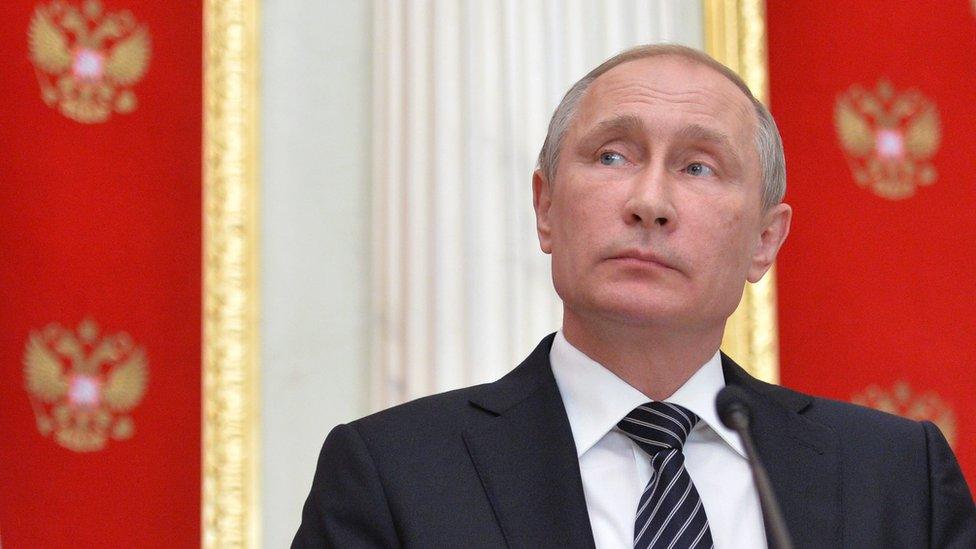
Moscow mulls: What does Putin have in mind?
When it comes to recent events in Crimea, there are still more questions than answers.
Russian state TV channels have broadcast footage of men confessing to a plot to carry out terror attacks on the peninsula that was annexed by Russia in 2014.
The suspected saboteurs tell interrogators they were acting on orders from Kiev. Ukraine denies any involvement and calls it a provocation.
Local residents near the scene do report hearing shots fired last Saturday night, when the FSB security service says it intercepted the first group of men.
But the FSB statement describes a second attempted incursion of Crimea accompanied by "massive fire from the neighbouring state and armoured vehicles of the Ukrainian armed forces".
No video footage or independent confirmation of that incident has yet emerged.
What actually took place therefore remains a mystery. But it is what happens next that matters most, as the incident raises tensions between Moscow and Kiev to dangerous heights.
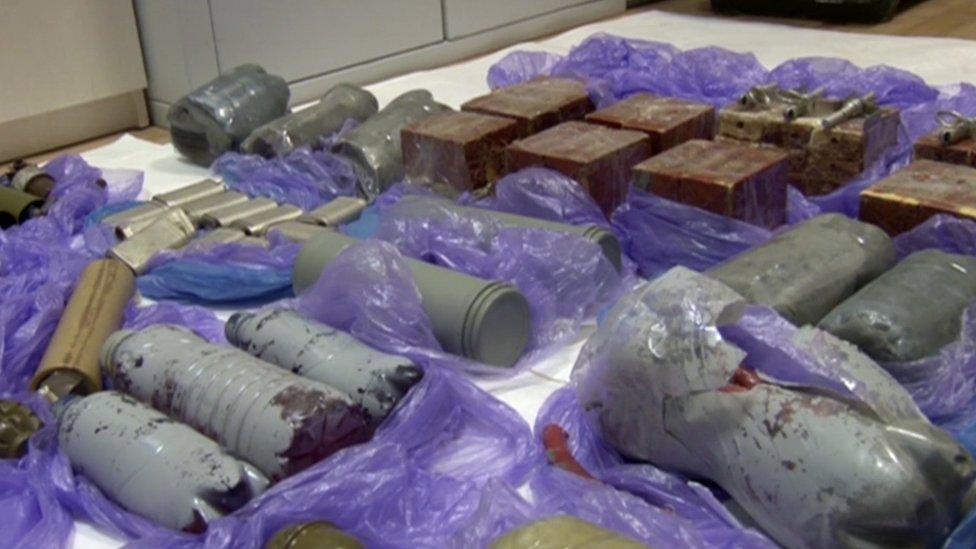
Russia's FSB security service said it had recovered explosives and ammunition from the "saboteurs"
So is Moscow planning to retaliate militarily against what it is describing as an act of terror masterminded by Kiev?
Vladimir Putin has already pledged that he will "not let such things pass".
In that context, the subsequent deployment of S400 air defence missiles to Crimea could well seem menacing. Russia's Defence Ministry has also announced military exercises on the peninsula next week.
It all underlines Russia's intent to defend the territory it annexed from Ukraine two years ago in a move condemned as illegal by Kiev and the West.
'Nothing to gain'
Some see signs that a Russian military offensive is building.
They argue that the timing is ideal, with the US busy with elections, the EU distracted by Brexit and the Olympic Games as an all-round diversion. Here in Moscow though, many are sceptical.
"Nothing is impossible. However I do not think that corresponds to recent tactical moves we've seen by Moscow," counters Andrei Kortunov of the Russian International Affairs Council.
He describes a "micro-detente" in relations with the West and sees signs that Moscow wants to get Western sanctions over Crimea lifted, not reinforced. The stubbornly low price of oil adds to pressure for that.
"I would be surprised if this is a smokescreen for war as I do not see what Putin has to gain now," Mr Kortunov concludes.
Moreover, he sees a "trend to flexibility" on sanctions from the West.
"It's not a good time for a real war, now the economy has dipped. So these are only words, albeit tough ones," argues Andrei Kolesnikov of the Carnegie Moscow Center.
He believes the latest crisis will pass in a matter of weeks.
"But we do know that frozen conflicts can become hot at any time," he cautions.
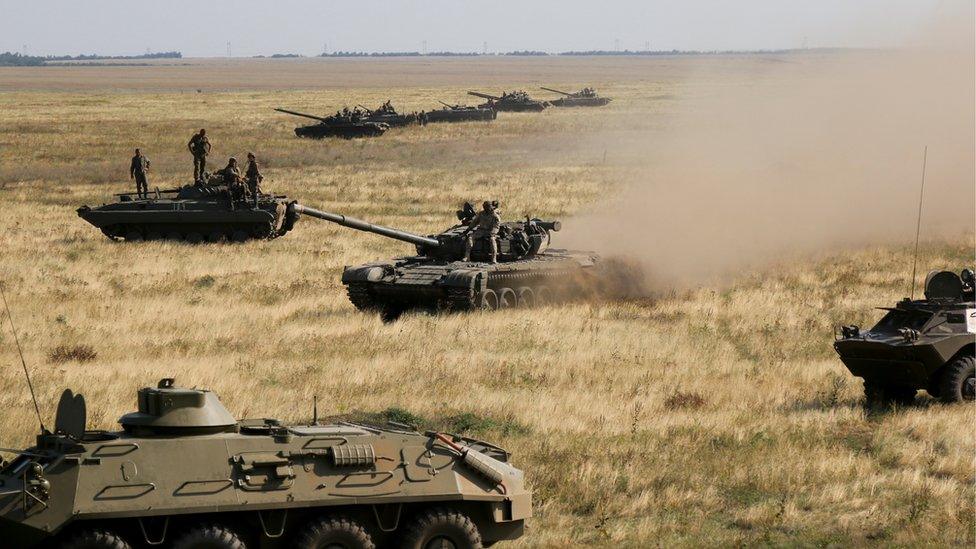
Ukraine has placed its army on combat alert close to the de facto border with Crimea
So is Russia's tough response, or even the entire incident, for domestic consumption?
The language Vladimir Putin has chosen is certainly striking.
He has accused the authorities in Kiev of supporting terrorism and returned to his old practice of referring to them as having "seized power".
After making up with Turkey last week, Moscow could well be looking for a new external enemy for Russians to rally round, reinvigorating a sense of "us-against-them".
There is logic to that, given concern that an economic downturn could shrink support for pro-Putin parties at next month's parliamentary elections.
Just last May, Russia's prime minister was filmed being harangued by women in Crimea complaining about their pitiful pensions. In an awkward moment, he admitted there was no money.
"Putin needs to consolidate society," Andrei Kolesnikov says. "So a small war, a war of words, is important for this.
"Whenever there's conflict, Putin's rating grows - whether it's trade wars with the West, the sports doping scandal or a real conflict like in Syria."
Peace at an impasse
Staging something so risky - or reacting so forcibly to whatever happened - seems extreme for the sake of a few votes.
So is Russia's reaction aimed at the Ukraine peace process?
Vladimir Putin made it very clear that peace talks on Ukraine are now "pointless". They had been proposed by Kiev on the sidelines of the G20 summit next month.
But it seems more likely that Moscow is trying to shape the process, than walk away for good.
"The Minsk process is at an impasse, neither side can implement it," says Andrei Kolesnikov, referring to the ceasefire deal signed in Belarus' capital. "But Putin won't exclude himself from Minsk, he's just trying to make the situation more tense."
Russia's president was explicit, calling on the West to pressure Kiev to deliver results. Implicit within that was a threat: that Moscow will not play along with the talks forever.
Kiev blames Moscow for the impasse, pointing to ongoing clashes with pro-Russian rebels in the east; Moscow argues that Kiev is stalling on the big political reforms it needs to implement.
"Russia wants the regions (controlled by pro-Russian militants) re-integrated as a blocking share in the Ukrainian political system," Andrei Kortunov says. "The aim is to guarantee that Ukraine does not join Nato or move too far from Russia."
Of course that is what the Ukraine crisis has been about from the very beginning. This is just the latest tense and unpredictable chapter.
- Published13 August 2016
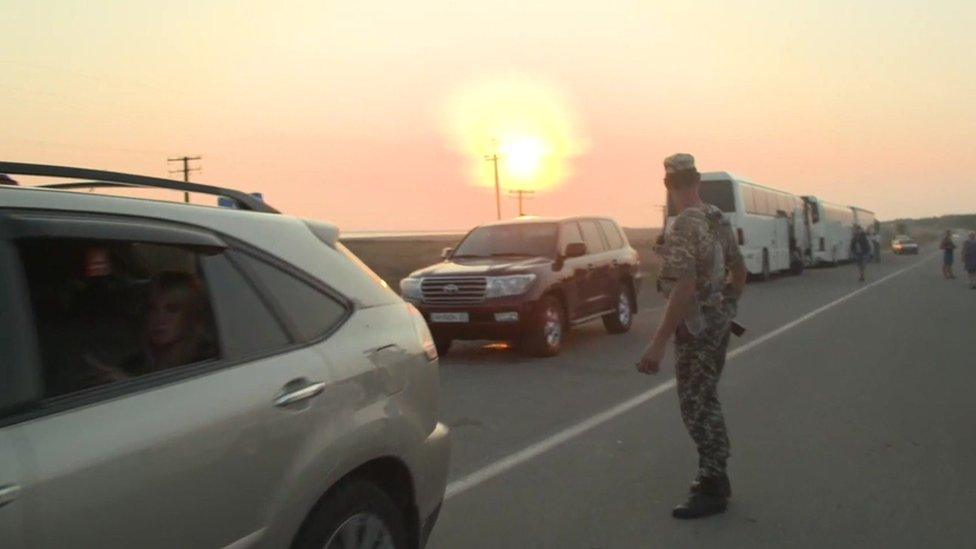
- Published12 August 2016
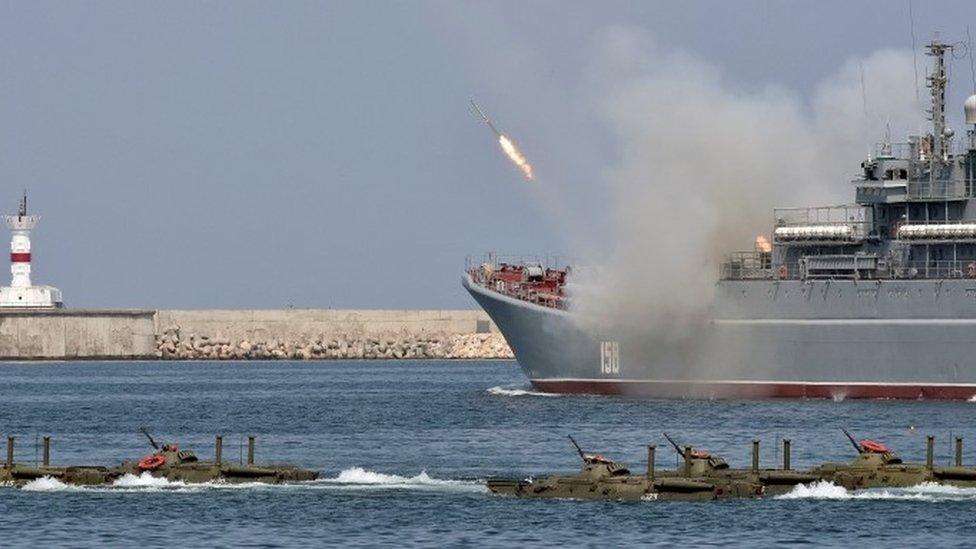
- Published12 August 2016
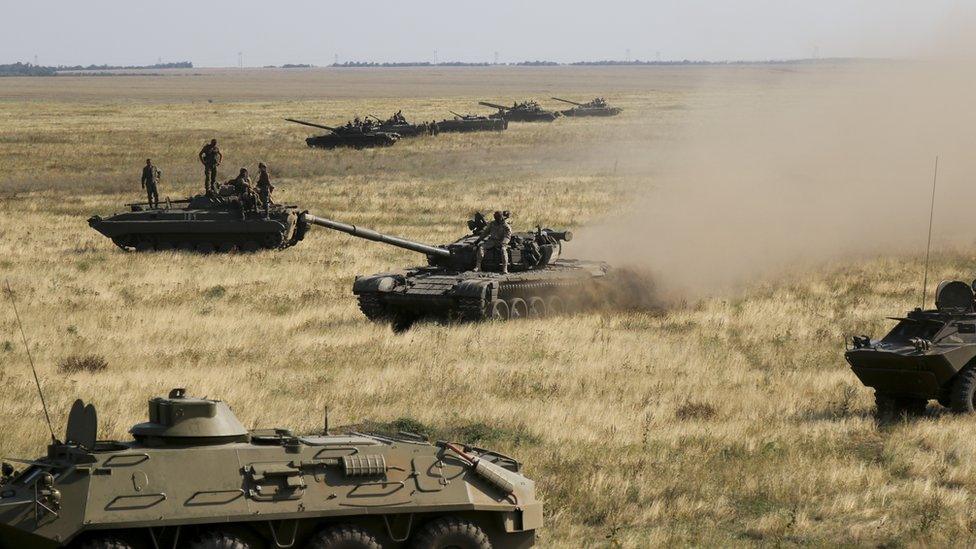
- Published11 August 2016